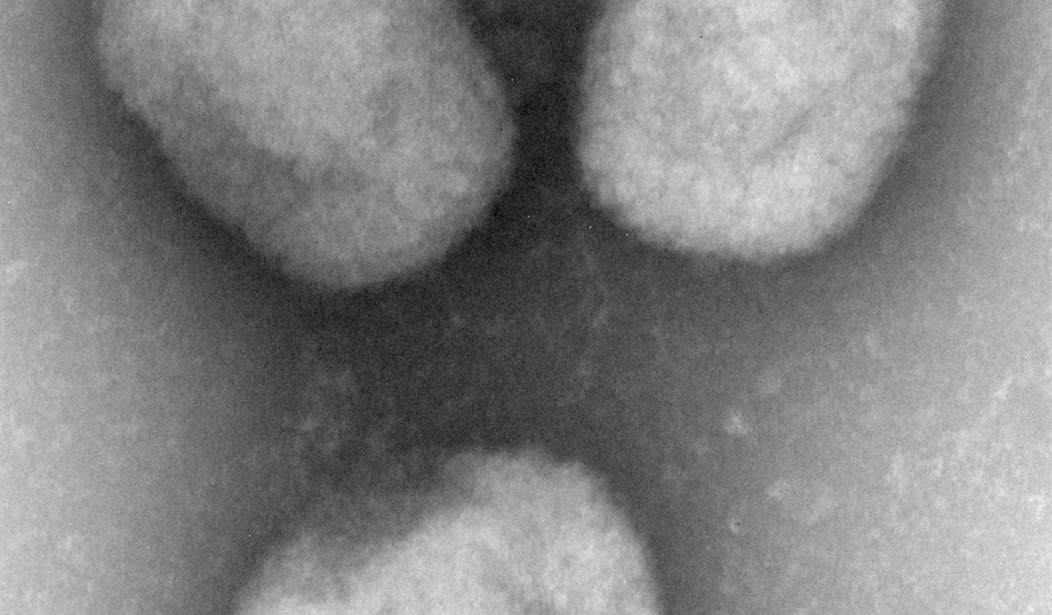This is one of those headlines from the medical news arena that’s delivered in two parts. The shot is, “CDC dismisses airborne transmission of monkeypox.” So that’s good news, right? But the chaser comes with, “Some experts disagree.”
Well, that’s just great. Make up our minds for us. Thus far the Great Monkeypox Apocolypse Scare of 2022 has thankfully looked like it’s mostly a bust. As of Friday, the Wall Street Journal reported that the number of cases in the United States had “doubled.” That sounds ominous until you read the details in the article and learn that the total number of cases diagnosed in America thus far as risen to… 45. In a nation of 350 million people, that’s not exactly a pandemic-level rate of transmissibility. But what about those rumors from last month that this might be a new variant and it could be going airborne? The CDC is still saying it’s not. Or at least not in the way that they generally define “airborne” when talking about a virus. (Yahoo News)
Officials at the Centers for Disease Control and Prevention on Friday pushed back against the idea that the monkeypox virus can spread through the air, saying the virus is usually transmitted through direct physical contact with sores or contaminated materials from a patient.
The virus may also be transmitted by respiratory droplets expelled by an infected patient who comes into physical contact with another person, they said. But it cannot linger in the air over long distances.
Experts on airborne transmission of viruses did not disagree, but some said the agency had not fully considered the possibility that respiratory droplets, large or small, could be inhaled at a shorter distance from a patient.
We’ll get back to the airborne issue in a moment, but we’re seeing increasing signs that the early European estimation that the virus was likely being spread through sexual contact still seems to be drawing support. On Friday, Rochelle Walensky held a conference call where she reported that a significant percentage of the confirmed monkeypox cases were found in patients who were also suffering from syphilis, herpes, gonorrhea or chlamydia infections.
One reason she wanted to point that out is that the symptoms of milder cases of monkeypox can look very similar to those of herpes and syphilis. But it also suggests that people engaging in unprotected sex may be passing along the new monkeypox virus as well. Take that for what it’s worth. Since it’s coming from the CDC we would probably be wise to check with as many other sources as possible.
As far as the airborne question goes, what’s being reported here just makes sense. When something like the Wuhan COVID virus is breathed out into the air it can waft around on the breeze for a fair bit of time before being breathed in by someone else. That’s the real description of a pathogen that’s truly airborne. It’s also different from the “droplet” mode of transmission. The monkeypox virus may not be airborne in the previous sense, but if somebody sneezes right in your face and sprays droplets at you, obviously you may be at risk of coming down with the disease.
I suppose the bottom line here comes down to the same common-sense practices that everyone should have already been familiar with even without any government mandates or lockdowns. If you wake up feeling sick and you’re sneezing and coughing, don’t go to work. Go see a doctor. If you see a stranger sneezing and coughing, steer clear of them. Wash your hand when you get home. And if you really want to be safe, go talk to your doctor about whether or not you should get the monkeypox vaccine. It’s a “classic” vaccine made from weakened samples, not that new mRNA technology. My doctor said I probably shouldn’t need it because I was vaccinated for smallpox as a boy. But if you started school later than 1973 or so, you might never have had that vaccine so take that into consideration. Either way, as I said, I’m not an expert. Go talk to your doctor if you have concerns.
One final point to keep in mind. You may have to get used to calling monkeypox something else in the near future. There are some people complaining that the name is stigmatizing. I only wish I was kidding.







Join the conversation as a VIP Member